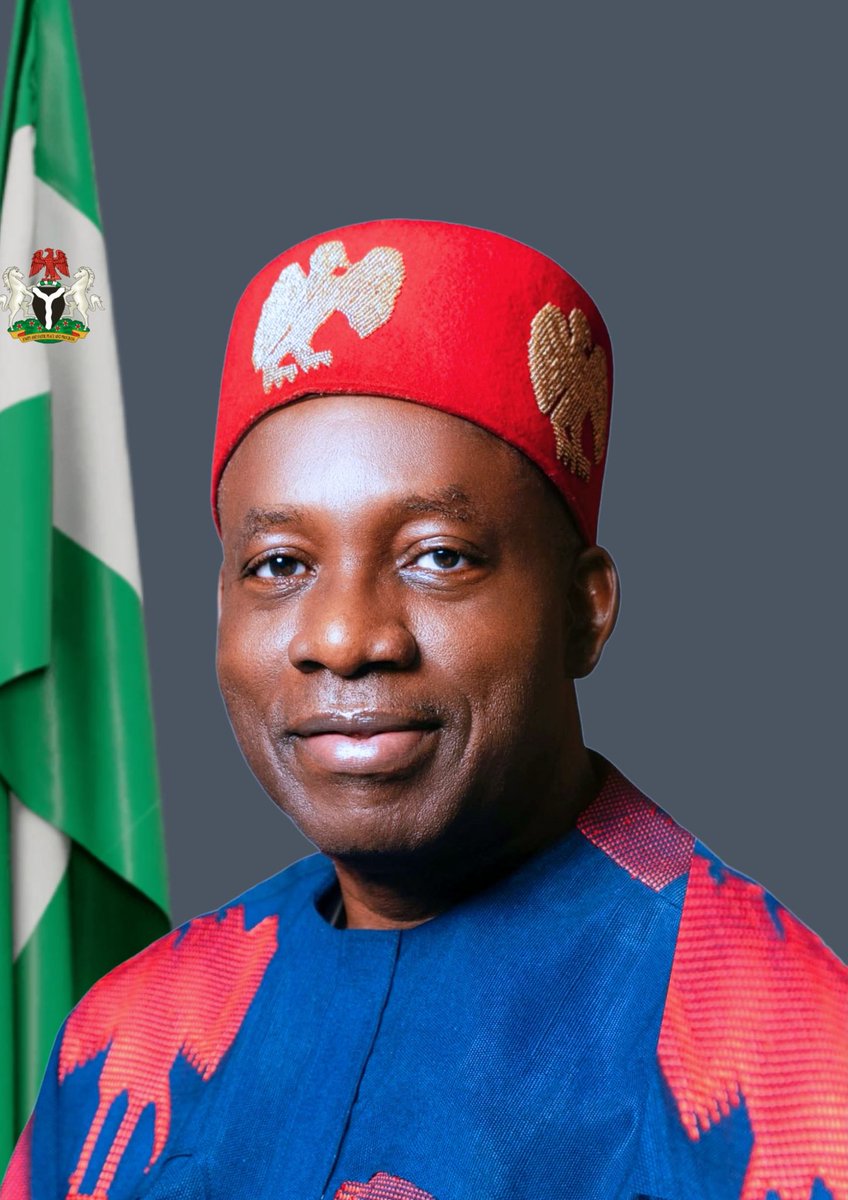
Soludo Triumphs: APGA’s Chukwuma Soludo Declared Winner of Anambra Governorship Election in Landslide Victory

In a stunning but widely anticipated political victory, Professor Chukwuma Charles Soludo, candidate of the All Progressives Grand Alliance (APGA), has been officially declared the winner of the Anambra State governorship election by the Independent National Electoral Commission (INEC). The announcement followed the collation of results from all 21 local government areas of the state, cementing Soludo’s dominance across Anambra’s political landscape and marking a defining moment in the state’s democratic journey.
The former Governor of the Central Bank of Nigeria (CBN) cruised to victory in what observers described as one of the most transparent, peaceful, and competitive elections in recent times. According to the final results announced by the INEC Returning Officer, Soludo polled the highest number of votes, leaving his closest rivals — from the Peoples Democratic Party (PDP), All Progressives Congress (APC), and Labour Party (LP) — trailing far behind. The declaration, made in the early hours of Sunday at the INEC headquarters in Awka, was met with thunderous cheers from APGA supporters, many of whom had gathered all night in anticipation of the result.
The mood across major cities in Anambra quickly turned celebratory as jubilant residents took to the streets waving APGA flags, dancing, and chanting Soludo’s name. Markets, transport unions, and youth groups poured out in spontaneous processions, celebrating what they described as “the victory of competence and continuity.” For many, Soludo’s win represents a continuation of APGA’s political dominance in Anambra, a state that has largely remained the party’s stronghold since the era of former governor Peter Obi and his successor, Willie Obiano.
Professor Soludo’s political journey has been anything but ordinary. A respected economist and intellectual, he first gained national prominence as CBN Governor, where he introduced sweeping banking reforms that earned him both local and international acclaim. His foray into active politics was initially met with skepticism, but his persistence and alignment with the APGA ideology of “Nke a bu nke anyi” — meaning “This is ours” — gradually earned him a loyal grassroots following. This election, analysts say, was a test of his political resilience, given the fierce contest from major national parties and the increasingly fragmented voter landscape in the Southeast.
The road to victory was not without challenges. The election was preceded by intense political tension, fears of insecurity, and threats of voter apathy, largely fueled by uncertainty and anxiety over safety. However, the process eventually proceeded smoothly, with INEC commended for its handling of logistics and technology deployment. The introduction of the Bimodal Voter Accreditation System (BVAS) was credited for enhancing the credibility of the process despite a few technical hitches in some polling units.
In his victory speech shortly after being declared winner, Soludo expressed profound gratitude to the people of Anambra State for their trust and confidence in his vision for transformation. “This victory belongs to every son and daughter of Anambra,” he said, visibly emotional. “You have spoken with one voice, and your message is clear — that you desire progress, competence, and a future we can all be proud of. I dedicate this victory to God Almighty and to the resilient people of this great state who defied all odds to make their voices heard.”
Soludo also extended an olive branch to his opponents, calling for unity and cooperation in rebuilding the state. “Elections come and go, but Anambra remains. I call on my brothers who contested with me to join hands in moving our dear state forward. There is so much work to be done, and the time for division is over,” he said, emphasizing his readiness to begin the journey of governance immediately.
Reactions have continued to pour in from across the country, with political leaders, civil society groups, and citizens congratulating the governor-elect on his victory. President Bola Tinubu reportedly sent a congratulatory message commending the people of Anambra for their peaceful conduct and urging Soludo to build on the legacy of progress and stability in the state. Similarly, the leadership of APGA hailed the win as a reaffirmation of the party’s deep connection with the people of Anambra and a testament to its enduring political relevance.
Observers believe Soludo’s administration will face both high expectations and complex challenges. As the state’s new leader, he inherits a mix of achievements and unresolved issues — from infrastructural development and industrial growth to youth unemployment, insecurity, and the need to sustain Anambra’s reputation as one of Nigeria’s most economically vibrant states. His manifesto, centered on “Anambra: The Smart Mega City,” promises sweeping reforms in education, technology, urban development, and entrepreneurship, all aimed at positioning the state as a model for subnational governance in Africa.
Political analysts also see Soludo’s victory as having broader implications for Southeast politics. With increasing calls for regional cooperation and restructuring, his technocratic background and political independence could make him a key voice in shaping the region’s development agenda. “Soludo’s emergence marks the rise of issue-based leadership in the Southeast,” said Dr. Emeka Nwosu, a political analyst based in Enugu. “His success is not just a win for APGA, but for a new generation of leaders who are driven by ideas rather than tribal loyalty or party godfathers.”
As celebrations continue across Awka, Nnewi, and Onitsha, attention now turns to the transition process and the inauguration ceremony, expected to take place in a few weeks. Supporters have described the win as a divine mandate, with some comparing Soludo’s rise to that of technocrats who have successfully blended academic brilliance with practical governance. For many young people, his journey from academia to politics is an inspiring story of perseverance and proof that credible leadership is still possible in Nigeria’s political system.
International observers, including the European Union Election Observation Mission, have also commended the conduct of the election, describing it as “largely free, fair, and reflective of the will of the people.” They praised INEC for improvements in electoral transparency and urged continued reforms to strengthen Nigeria’s democratic process.
As dawn breaks over Anambra State, the echoes of celebration are likely to continue well into the week. From Awka to Ihiala, from Aguata to Onitsha, the message is clear: a new chapter has begun. Soludo’s triumph not only reaffirms APGA’s hold on Anambra but also signals a renewed hope for governance anchored on competence, accountability, and vision.
The people have spoken, and their voice has echoed across Nigeria’s political space — a resounding call for leadership that works, for governance that delivers, and for a future defined not by party lines but by performance. For Anambra, the journey ahead may be challenging, but under Soludo’s leadership, many believe the state is poised to reclaim its place as the “Light of the Nation.”
With his victory now official, the former central banker steps into history not just as a politician but as a reformer called once again to serve — this time, not the banks, but the people. And for the people of Anambra, the hope is that this new dawn will shine brighter than ever before.

